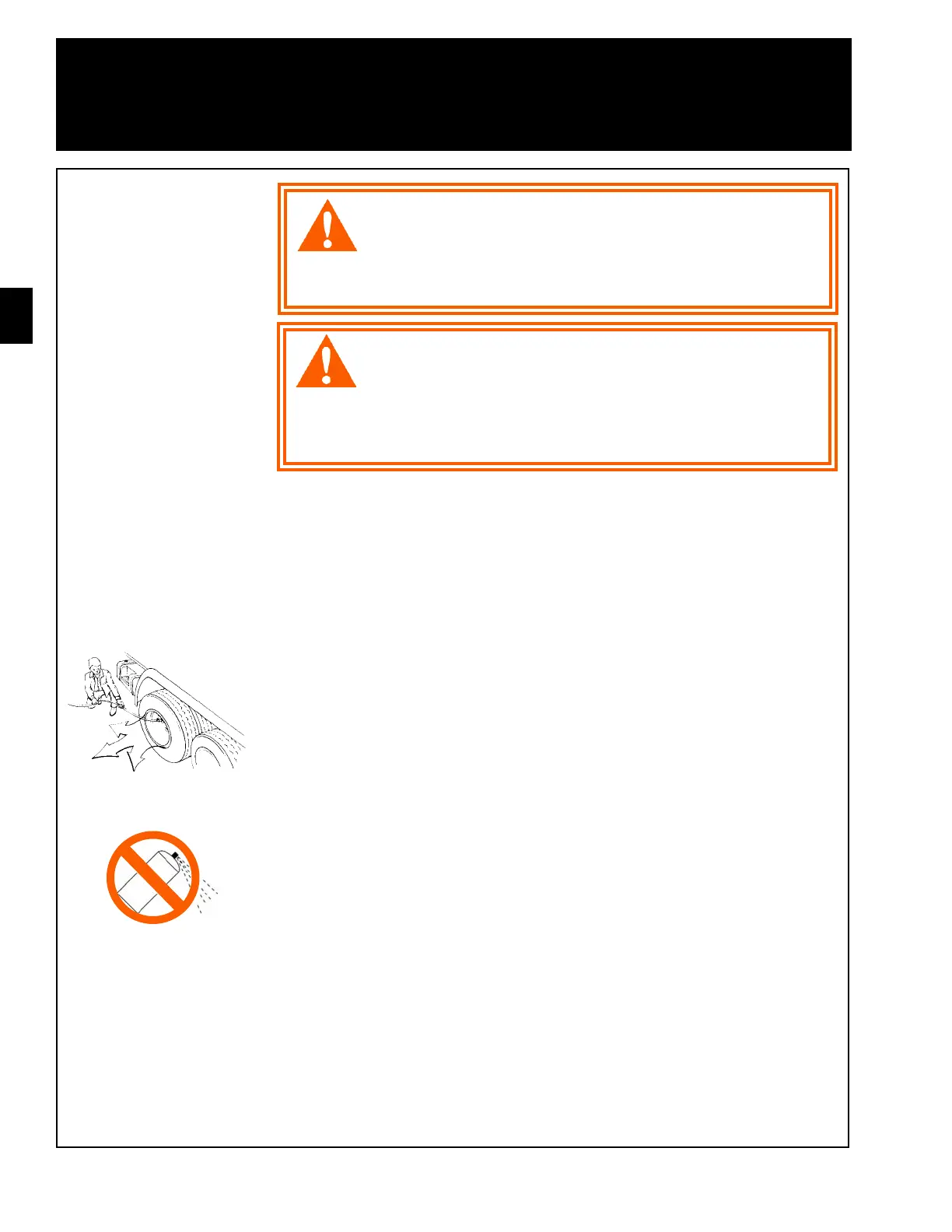18
3
Alcoa 15° Drop Center Wheel
3
for Tubeless Tires
Recommendations
for mounting
tubeless tires
3-1
WARNING Use of inner tubes in tubeless wheels will hide slow leaks. Slow leaks
may indicate cracked (see section 2-9, page 12) or damaged wheels which lead
to wheel failures.
Wheel failures can cause accidents which may result in serious injury or death.
Never use an inner tube on an Alcoa tubeless wheel, and always remove cracked
or damaged wheels from service.
WARNING
WARNING
Damaged tires or wheels can lead to an explosive separation
of tires and wheels.
Explosive separation can result in serious injury or death.
Inspect tires and wheels for damage before removing from vehicle. If damage
is found, the tire must be completely deflated before loosening cap nuts.
Remove damaged tires or wheels from service.
WARNING
NOTICE: For complete
information on tube type
wheels, contact Alcoa.
NOTICE: Alcoa aluminum
19.5" RW and non-symetrical
well wide base wheels
require special tire mounting
techniques, See Section 3-2.
1. Do not gouge or nick the wheel. Place aluminum wheels on clean wooden floor or
rubber mat when hand mounting tires. Additional care should be used when mounting
Alcoa Dura-Bright
®
surface treated wheels since minor nicks and scratches cannot be
polished out (see section 5-8, pages 37 & 38 for specific cautions, care and maintenance
procedures). DiscMate wheel spacers are recommended for use with Alcoa Dura-Bright
®
surface treated wheels to protect the wheel contact surfaces from marring.
2. Always use a rubber, leather-faced or plastic mallet.
3. Inspect the wheel for damage. Do not use a damaged or severely corroded wheel.
(See Section 2, page 5).
4. Clean the wheel face with mild detergent and the tire bead seat areas with a wire brush.
Be sure the wheel is dry before applying tire lubricant.
5. Inspect the tire for damage. Be sure the inside of the tire is dry before it is mounted.
6. Use of a non-water-based lubricant is recommended as a rim surface protectant and
tire mounting lubricant. Coat the entire rim surface. (See 3-2, page 19).
7. Lubricate the rim and tire bead immediately before mounting the tire. Do not use any
lubricant which contains water. Water-based lubricants can promote corrosion attack on
the rim surface. The use of non-water-based lubricants is especially important when
mounting tubeless tires as the air in the tire is contained by the seal between the bead and
tire rim.
8. Never lubricate the rim or tire bead with a flammable solution. This can lead to an explosion
during airing of the tire or in subsequent operation of the vehicle (see Warning below).
9. If using a tire mounting/demounting machine on aluminum wheels, care should be
taken to prevent gouging the wheel.
10. Use only dry air for tire inflation. The use of moisture traps in the air compressor feed
line is recommended.
11. Do not overinflate. Use the tire manufacturer’s recommended pressure, but under no
circumstances exceed cold tire pressures listed in Section 1 Specifications of this
manual (see page 2).
12. When inflating a tire in an inflation cage or while mounted on a vehicle, always use a
clip-on air chuck or threaded straight chuck and a remote valve with pressure gauge.
Securely anchor the inflation cage and during inflation or handling of an inflated wheel and
tire assembly, stay out of the path of potential exploding parts or air blasts.

